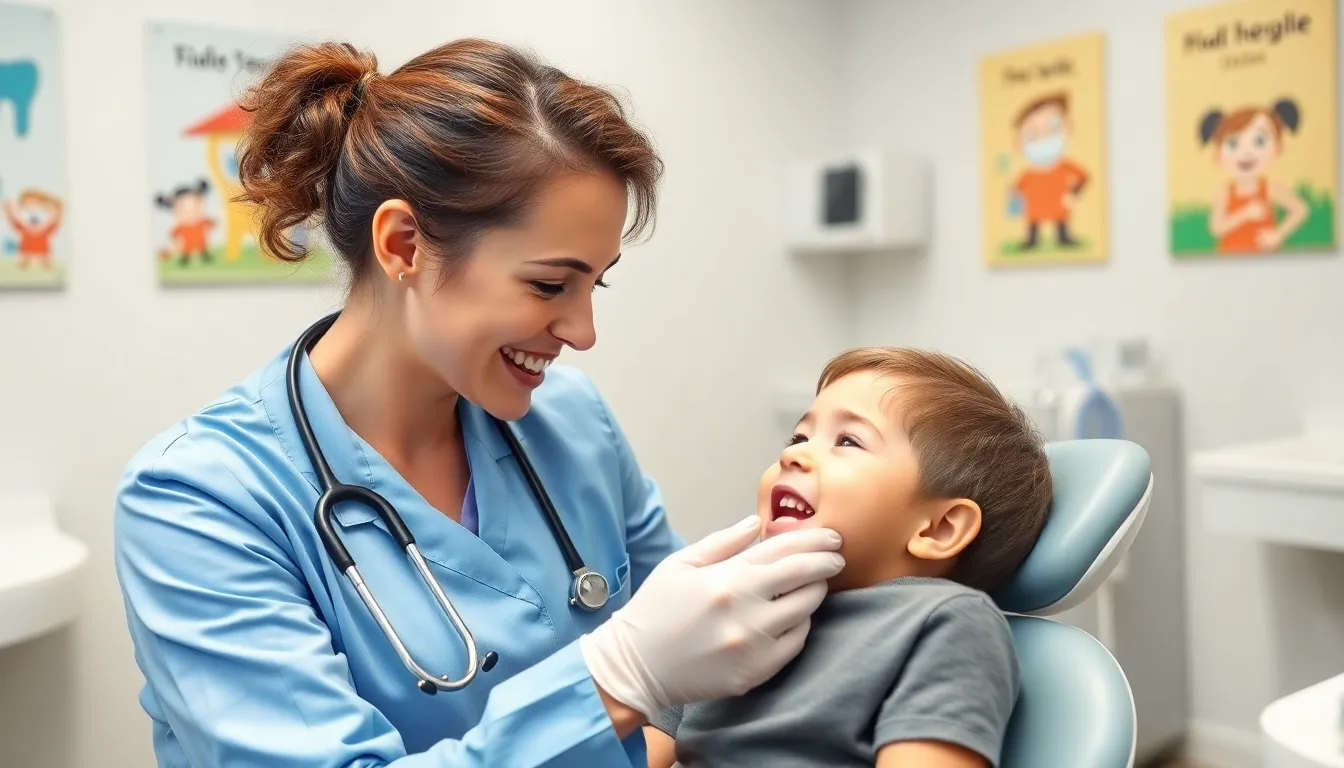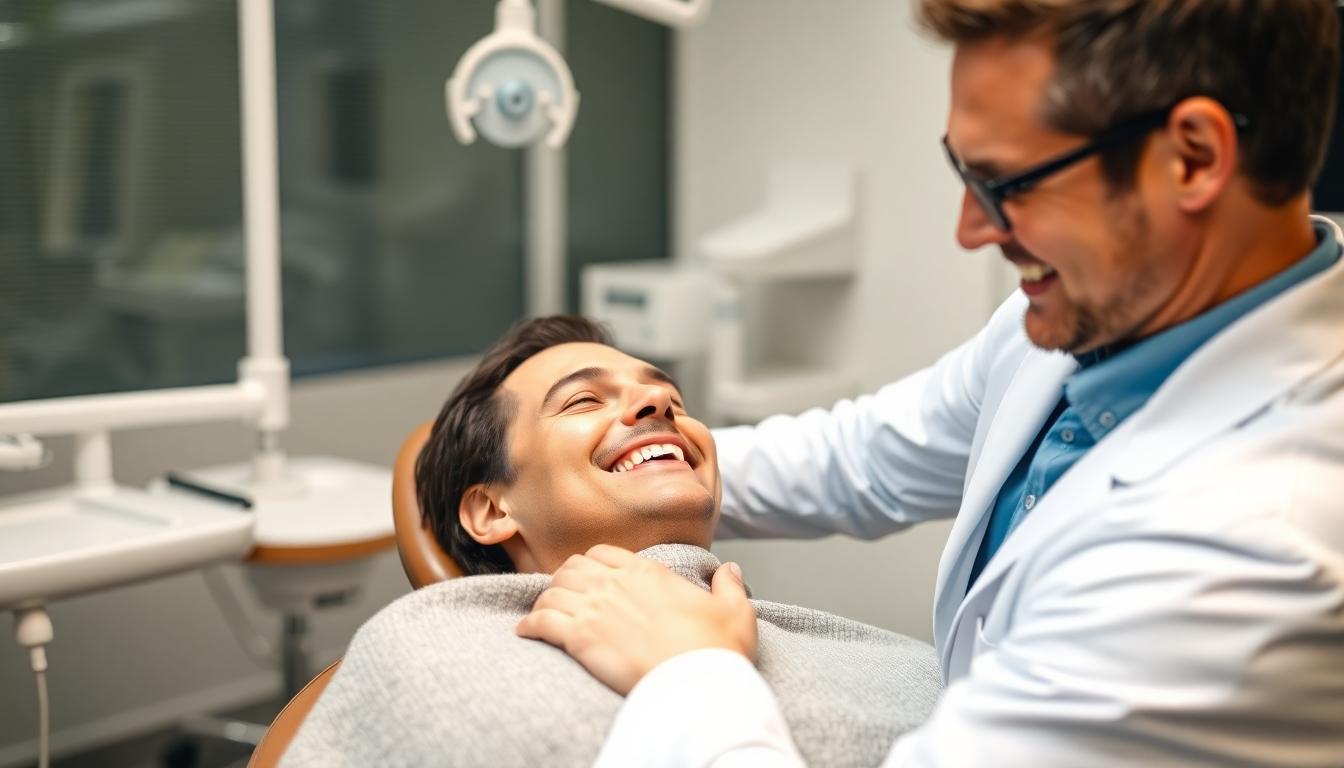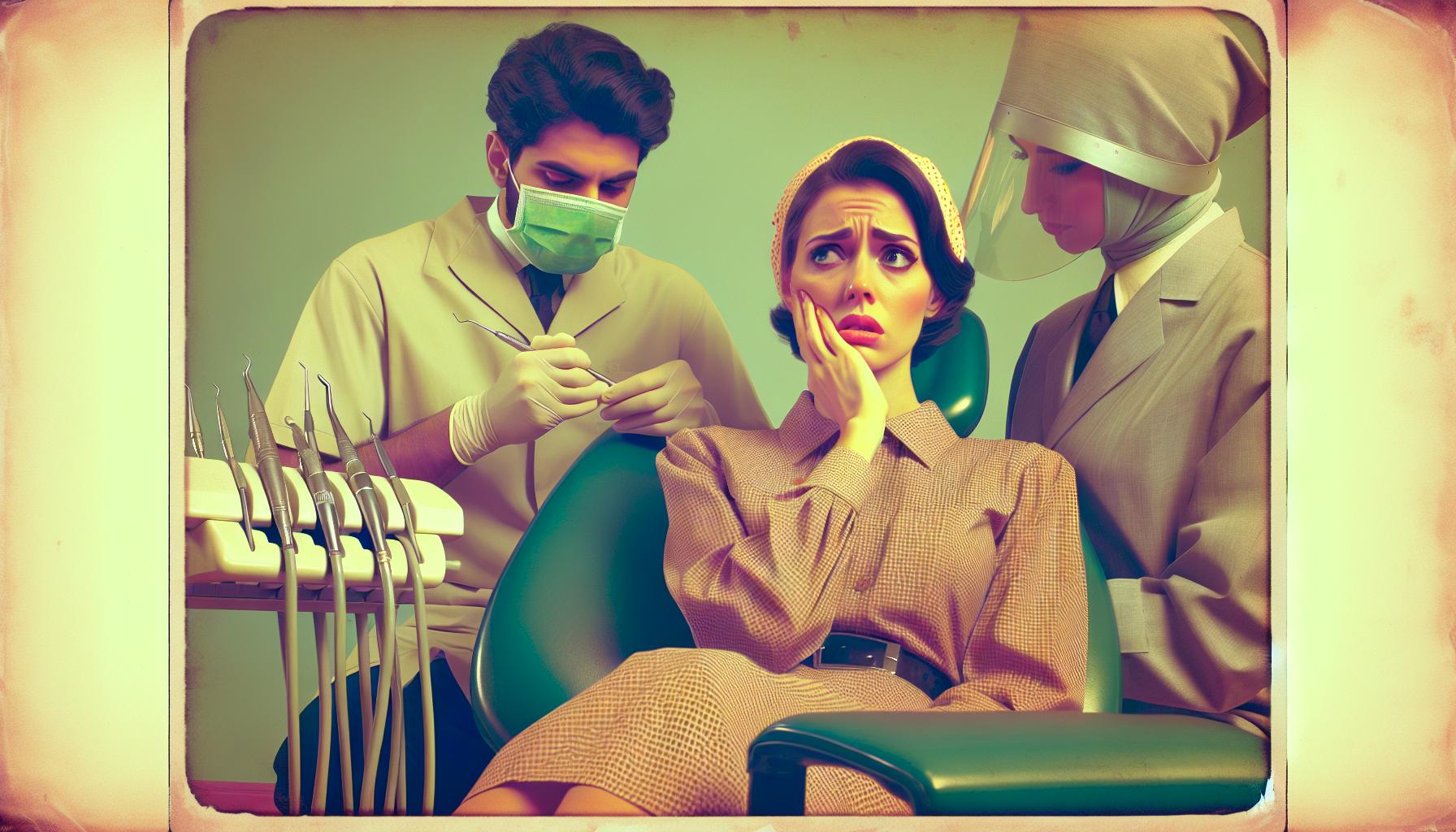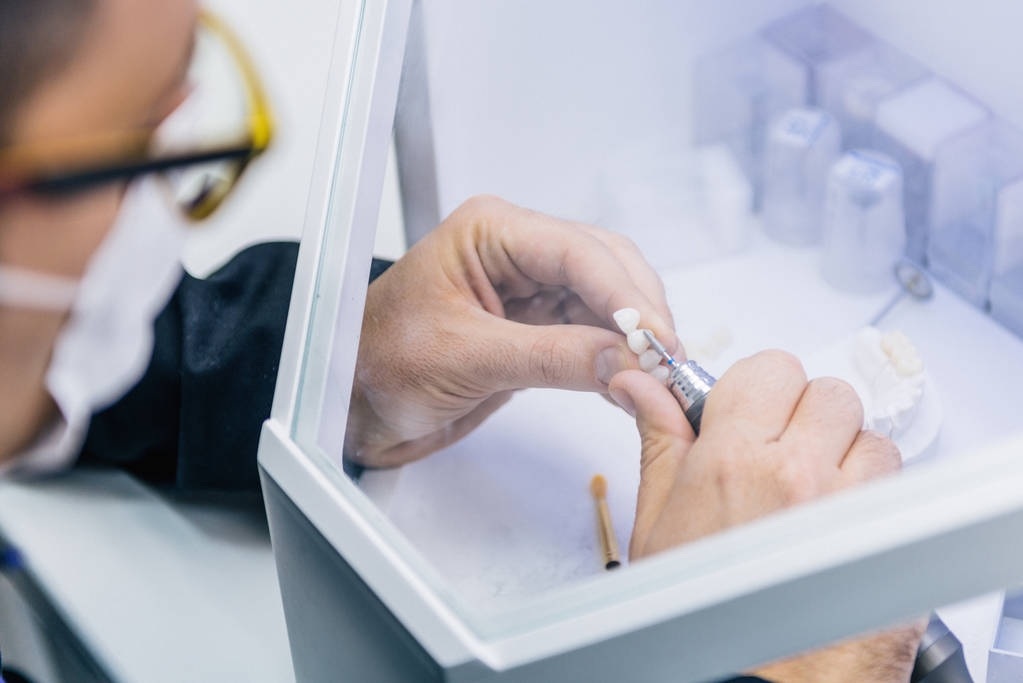Key Takeaways
- Paediatric dentists typically treat patients from infancy (around six months) through to late adolescence, covering ages 0-18.
- Specialised care is provided for each developmental stage, including infants, children, pre-teens, and teenagers, addressing unique oral health needs as children grow.
- Preventive treatments, early intervention, and behaviour management techniques are central to paediatric dental care, ensuring positive dental experiences.
- Transition to an adult dentist generally occurs between ages 12 and 18, based on dental development, individual needs, and comfort levels.
- Age-specific dental care by paediatric specialists supports healthy oral habits and reduces lifelong dental risks, with guidance tailored to each patient’s stage of growth.
Parents often wonder when their child should first visit the dentist and how long they’ll need specialized dental care. Pediatric dentists focus on caring for children’s teeth from infancy through the teenage years, offering expert guidance tailored to each stage of oral development. These dental professionals understand the unique challenges of growing mouths and help establish healthy habits that can last a lifetime.
Specialized pediatric dental care typically begins around six months of age with the eruption of a baby’s first tooth and continues through late adolescence, usually until age 18. Throughout this period, different developmental stages require specific approaches to preventive care, treatment, and behavior management. For families seeking compassionate dental care specifically designed for children’s unique needs, Brisbane Dental Sleep Clinic provides comprehensive pediatric dental services from infancy through adolescence, with particular attention to creating positive experiences that build confidence and promote lifelong oral health.
Understanding Paediatric Dentistry
Paediatric dentistry focuses on dental care for infants, children, and teenagers, from birth through adolescence. These dental specialists receive advanced training to manage the growth and developmental changes that occur in the teeth, gums, and jaws of patients from 0 to 18 years. They treat primary teeth and early permanent teeth, addressing conditions like dental caries, malocclusion, and dental trauma specific to children and teenagers. Paediatric dentists also provide preventive care, including fluoride applications and dental sealants, to reduce cavity risk.
Special consideration for management, such as positive reinforcement or sedation techniques, supports anxious or uncooperative patients. In Brisbane, paediatric dental clinics tailor services to meet the needs of children at each developmental stage, offering guidance on oral hygiene, nutrition, and thumb-sucking cessation. Referrals to paediatric dentists typically occur when children display dental issues beyond the scope of a general dentist or have special health care needs. Paediatric dental specialists play a key role in establishing lifelong oral health foundations from infancy through adolescence.
What Ages Do Paediatric Dentists Treat
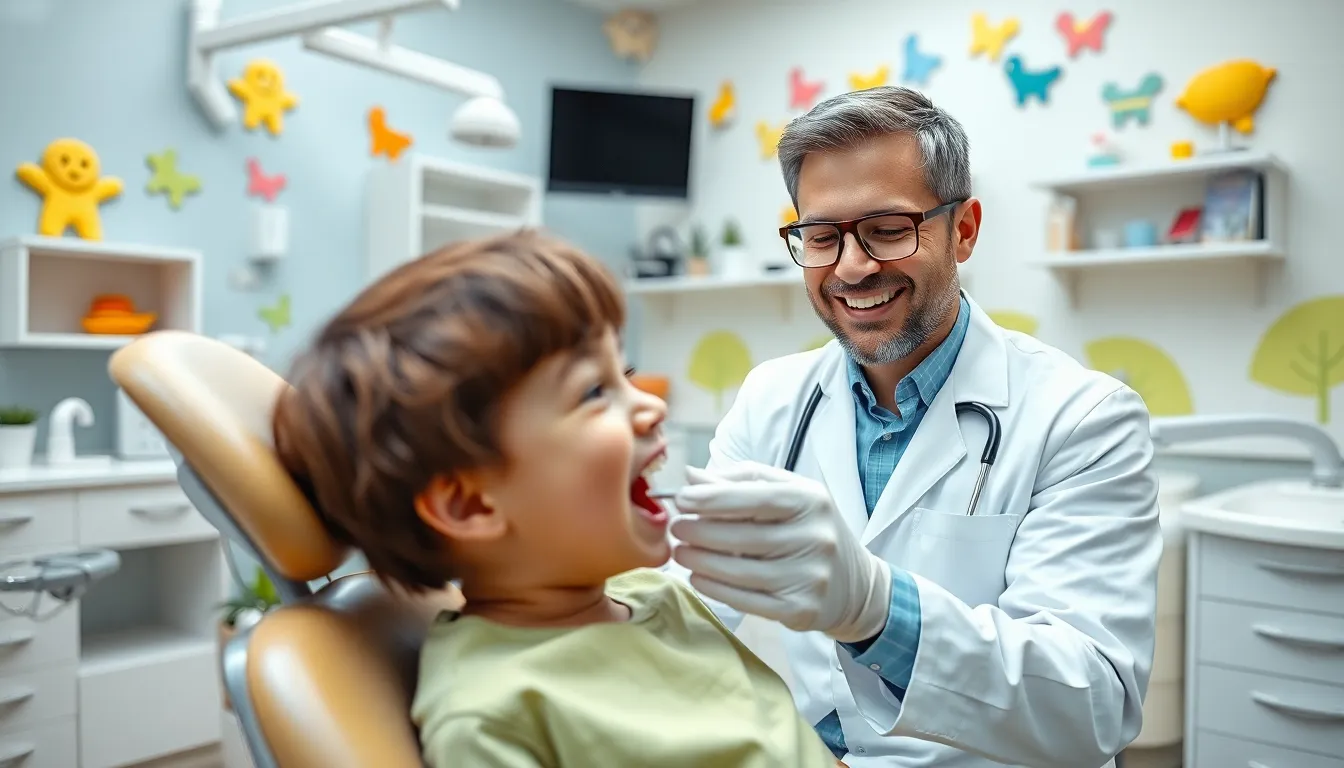
Paediatric dentists provide dental care for infants, children, and teenagers, with treatments tailored to developmental changes at each stage. Clinics in Brisbane, including Brisbane Dental Sleep Clinic, offer services from an infant’s first tooth through to late adolescence, prioritising comfort and clinical needs.
Infants And Toddlers
Paediatric dentists in Brisbane commonly treat infants and toddlers aged six months to about three years. First dental appointments often take place at the eruption of the first tooth. At this stage, dentists focus on oral examinations, early detection of dental issues, and parent education. Preventive measures like fluoride applications and oral hygiene guidance help manage risk factors associated with early childhood decay. Behaviour management is essential, especially for very young or anxious patients. Dedicated paediatric clinics, such as Brisbane Dental Sleep Clinic, provide a reassuring environment and may offer nitrous oxide or other minimal sedation options when needed for nervous infants or toddlers.
Children And Pre-Teens
Paediatric dentists typically see children and pre-teens from four to twelve years old, managing oral health during years of rapid growth and development. Treatments include preventive care, routine dental check-ups, cleaning, and early orthodontic assessments. Management of dental caries and common developmental concerns, including eruption sequence anomalies and oral habits like thumb sucking, forms part of care at this stage. Behavioural strategies and nitrous oxide sedation are available for patients experiencing dental anxiety or requiring complex procedures. Brisbane Dental Sleep Clinic tailors sedation options and patient communication to suit the age and comfort level of children and pre-teens.
Teenagers And Adolescents
Adolescents aged thirteen and older continue with paediatric dentist care, often up to the late teens or early twenties, especially when special health needs or established provider relationships exist. Dentists address concerns like wisdom teeth, orthodontic requirements, and sports-related dental injuries. Ongoing preventive care, oral hygiene education, and enamel health monitoring remain priorities. Teenagers facing dental anxiety, including those with special health care needs, can access sedation dentistry options—such as oral sedatives or intravenous sedation—at specialist clinics like Brisbane Dental Sleep Clinic. These services allow anxious or complex patients to receive stress-free dental care as they transition toward adult dentistry.
Why Age Matters In Paediatric Dental Care
Age matters in paediatric dental care because dental development and risk factors change from infancy through adolescence. Infants aged six months to three years receive assessments for oral habits, teething discomfort, and early signs of dental caries. Early intervention reduces cavity risks and ensures healthy tooth eruption, as demonstrated in cohort studies on early dental visits[4].
School-age children from five years old receive preventive treatments such as fluoride applications and dental sealants. Paediatric dentists provide assessments and timely intervention for crowding, misalignment, and bite concerns, which influence long-term dental outcomes[5]. Timely guidance ensures correct brushing and dietary choices when habits are forming.
Teenagers from about 13 to 18 years present orthodontic needs and increased cavity risks due to diet and hormonal changes. Dental specialists monitor wisdom teeth development, provide preventive care, and educate on oral health habits relevant to adolescent lifestyles[4][5]. Targeted approaches at each stage produce better alignment, lower risk of decay, and stronger oral health habits persisting into adulthood.
Paediatric dentists in Brisbane provide age-specific care, including early detection, behavioural strategies, and tailored preventive treatments for each developmental stage. Structured care from infancy to adolescence leads to healthier lifelong oral outcomes, according to findings from the Australian Dental Association and Queensland Health.
When To Transition To An Adult Dentist
Transition decisions for paediatric to adult dentist care often factor in a patient’s dental development, specific dental needs, and comfort. Many paediatric patients start considering a move from around age 12, as most permanent teeth have erupted by this stage. Some continue with paediatric dentists into teenage years, especially if they need specialised treatments for dental anxiety, complex orthodontic issues, or require ongoing preventive care within a comfortable setting.
Brisbane paediatric dental clinics, including services around North Brisbane, discuss transition timing with parents and patients based on oral health status and emotional readiness. Teenagers with heightened dental anxiety or special health needs may feel more secure with a paediatric dentist’s trained approach and familiar environment. Sedation options and behavioural support at clinics like Brisbane Dental Sleep Clinic help manage dental anxiety for patients not yet ready for adult practices.
General dentists in Brisbane usually accept new patients from age 12 to 18, depending on case complexity and the individual’s confidence. Effective transition involves coordinated communication between paediatric and adult dental teams to maintain continuity of care. Early planning with both dental providers ensures smoother adjustment and ongoing oral health for teenagers moving into adult dentistry.
About Brisbane Dental Sleep Clinic
Brisbane Dental Sleep Clinic, located in Upper Mt Gravatt, QLD, specialises in sedation dentistry to help alleviate dental anxiety and provide a comfortable experience for patients. Led by owner Ian Mason, the clinic offers a range of sedation options, including general anesthesia, intravenous (IV) sedation, and conscious sedation. Catering to both adults and children—particularly those with special needs—the clinic ensures a stress-free and compassionate dental experience for all patients, prioritising their comfort and well-being.
Contact:
Ian Mason, Owner
Phone: (07) 3343 4869
Email: [email protected]
Address: 11/1932-1974 Logan Rd, Upper Mt Gravatt, QLD 4122
Website: www.brisbanedentalsleepclinic.au
Frequently Asked Questions
What is a paediatric dentist?
A paediatric dentist is a dental specialist trained to care for children from infancy through their teenage years. They focus on managing the growth and development of children’s teeth, gums, and jaws, and address issues like cavities, dental trauma, and oral habits.
At what age should my child first see a paediatric dentist?
Children should see a paediatric dentist by their first birthday or within six months of their first tooth erupting. Early visits help detect potential problems and establish good oral hygiene habits from the start.
Why is paediatric dental care different from general dental care?
Paediatric dental care is tailored to the unique developmental needs of children. Paediatric dentists are experienced in managing dental growth, behavioural challenges, and specific treatments necessary for children, ensuring a positive experience and healthier outcomes.
What conditions do paediatric dentists treat?
Paediatric dentists treat dental caries (cavities), malocclusion (misaligned teeth), dental traumas, and oral habits (like thumb sucking). They also provide preventive care such as fluoride treatments and dental sealants, reducing the risk of future dental problems.
How do paediatric dentists manage dental anxiety in children?
Paediatric dentists use behaviour management techniques like positive reinforcement, distraction, and, when appropriate, sedation to help anxious or uncooperative children feel comfortable during treatments.
What preventive care do paediatric dentists provide?
Preventive care includes regular check-ups, fluoride applications, professional cleanings, dental sealants, and guidance on oral hygiene and nutrition to help reduce the risk of cavities and other dental problems.
When should my child transition from a paediatric dentist to a general dentist?
Most children transition to a general dentist around the age of 12, once their permanent teeth have erupted. However, some may benefit from ongoing paediatric care into their teenage years, especially if they have special needs or dental anxiety.
How do paediatric dentists support children with special health care needs?
Paediatric dentists are specially trained to care for children with special health care needs, adapting treatments and environments to be safe, comfortable, and effective for each individual patient.
Why is early dental care important for my child?
Early dental care helps detect issues before they escalate, establishes lifelong healthy habits, and prevents cavities and misalignment. Regular visits also reduce fear and anxiety about dental care as children grow.
How do Brisbane paediatric dental clinics tailor care for local families?
Brisbane paediatric dental clinics offer comprehensive services designed for every stage of a child’s development, including guided oral hygiene, nutritional counselling, behaviour management, and collaborative transition planning to adult care when appropriate.
